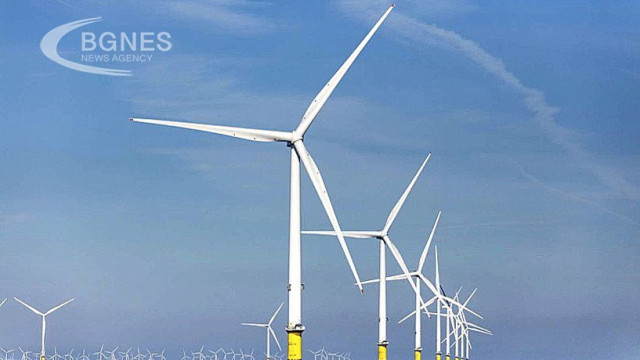There is no risk to fishing and tourism from the deployment of wind power plants in the Black Sea. The Ministry of Internal Affairs and Communications promises strict control so that fish passageways and bird routes are not affected.
BGNES spoke with Martin Vladimirov, director of the "Energy and Climate" program at the Center for the Study of Democracy, and with the Minister of Environment and Water Prof. Yulian Popov regarding the concerns of some of the industry organizations from the "Tourism" and "Fishing" sectors after the adoption of a bill by the National Assembly in the first reading, which envisages the deployment of wind power plants in the Black Sea in the future. At the press conference, the industry organizations stated that there is a risk of locating the plants near the Black Sea coast, which will destroy the tourism sector, there is a risk to the environment, and fishermen will be prevented from carrying out their activities in the future. They also called for the withdrawal of the bill.
"The concerns of the NGOs are not well founded because they are not based on any data and facts. In the Black Sea, the wind speed near the coast is low, and wind farms will be built in areas over 20 km. into the sea. They will not be visible from the shore, and if they are noticed, they will look like small gray specks in the distance," said Martin Vladimirov.
He gave the example of the city of Brighton, located on the south coast of Great Britain, where one of the first offshore wind farms was built right on the shore, opposite the most luxurious hotels. "The centers are located 19 km away. from the shore. I was there on a visit and they were not visible from the shore," explained Vladimirov.
He specified that, in the future, the fishing activity is also not threatened, there is a period of restrictions, but there should be compensations. "Thousands of studies have been done on the effect on biodiversity, and so far there is no consensus that offshore wind energy leads to a decrease in fish stocks, that is, fishermen will not be restricted and will be able to carry out their activities in the territory of offshore wind farms," said Vladimirov. The expert pointed out that the restrictions occur entirely and only during construction, which takes about 6 months to 1 year. "Even in this period of restriction, compensatory mechanisms are being created - in Denmark and other countries, the investors themselves are calling on the fishermen to sit down at the same table and conclude agreements and to have a special financial mechanism to compensate the fishermen for this period," said Martin Vladimirov.
Regarding noise vibrations, Vladimirov explained that with the help of airbags, the vibrations will be isolated and not scare the fish. "Technology is very advanced, things have been invented and how to minimize the risks," Vladimirov assured, then clarified that it will not be a Bulgarian company that will build this project, but it will be international, giant oil companies that want to deal with RES. "You can work with the sectors so that there are compromises," Vladimirov believes, then added that the development of offshore wind energy is the future, as well as improving the local economy because 27,000 new jobs will be created for the Black Sea alone and different sectors will be involved, but he still clarified that the construction of the power plants will not happen even now. "First, a regulatory framework is created to give predictability to investors to start operations in the country and only then to start operations. This can be done in the period 2032-2040. That is, there is still a lot of work to be done," commented Martin Vladimirov. He explained that the draft law, which was adopted in the first reading by the National Assembly, sets the framework for operating the future wind power plants in the Black Sea.
BGNES also sought the opinion of the Minister of Environment and Water Prof. Yulian Popov regarding the risk to the environment. "The people's representatives have not accepted the decision to place the so-called 'fins', but pass a law to enable the development of offshore wind energy - one of the many components that are necessary for such energy to emerge," he stated. According to him, the concerns of some of the branch organizations are not justified for the reason that "the law is a small part of the whole system". "Whatever is put in place is subject to very strict public discussions, to very strict restrictions concerning the security of the environment, infrastructure, fish passages, bird routes, etc. I hope that the protests at the moment are part of the active participation of society, which should be present, and not just opposition to a technology that is developing and will continue to develop", added the Minister of Environment and Water Prof. Julian Popov. /BGNES







